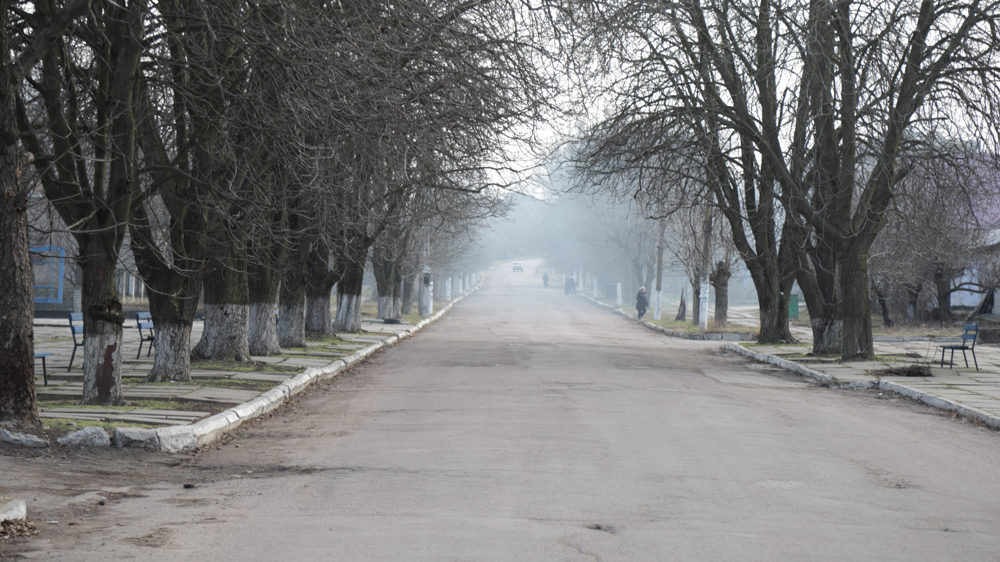The former district center, and now the center of the community, the village of Novovorontsovka is the only administrative center of the region that was not occupied by the Russians in the spring-summer of 2022. Some of the community’s settlements were either under occupation or on the firing line, and the village itself was a “grey zone” with daily cross-fire and virtually a complete blockade of food and medicine supplies.
The community, located on the very border with Dnipropetrovsk region, took the brunt of it and is now slowly recovering from the damage made.
From an activist to the head of the military administration
“Some of the authorities withdrawn themselves, someone left, someone got quiet, law enforcement agencies were almost all liquidated – there was a complete misunderstanding of the situation,” says Andriy Seletskyi, head of the Novovorontsovka settlement military administration.
Before the full-scale invasion, historian and regional specialist Andriy tried to make residents and guests of a remote community fall in love with his region, led excursions, dived into the Kakhov reservoir in search of flooded settlements and dreamed of developing his native community.
After the invasion, he became a volunteer, delivering food and medicine to the residents of the surrounding villages under fire.
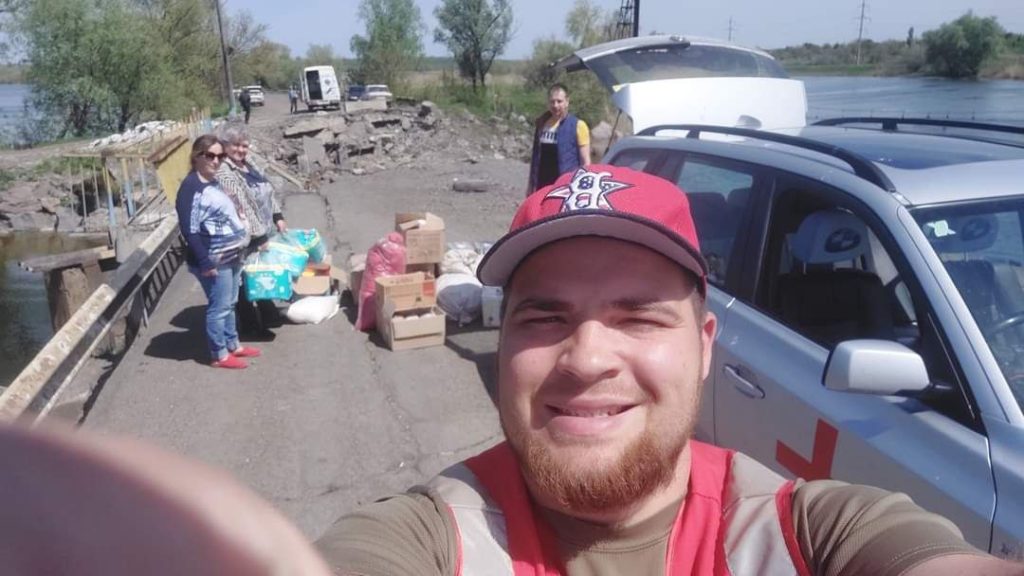
When in the summer of 2022 the question arose about the creation of military administrations, Dmytro Butriy, the deputy head of the Regional Military Administration (RMA) at the time, proposed the candidacy of Andriy for Novovorontsovka. He does not conceal this fact and says that he actively cooperated with Butriy, who helped with food, medicine and hygiene products. Seletskyi, as a volunteer of the Red Cross, delivered everything around the community.
“I conducted an interview with him, listened to his plans and strategy and took the risk of submitting his candidacy to the Office of the President,” recalls Yaroslav Yanushevich, former head of the RMA.
Many in RMA then said that the young idealist would be a problematic leader, but the then governor had no choice. The former head of the community either disappeared, or the residents themselves kicked him out.
“In mid-March, the Russians occupied Osokorivka and once drove an armored personnel carrier into Novovorontsovka. They drove very quickly to the Dnipropetrovsk region and then drove off rapidly. The front line passed through our community. Vysokopilya was already occupied. Our troops stood higher, and the orcs ones were lower,” Andriy recalls.
According to him, up to 1,000 attacks of all types of weapons were conducted in the village and other settlements of the community per day. Traces of battles are still visible. In the center of the village we see shallow craters from “Grad” attacks, trees cut by fragments from mines and shells.
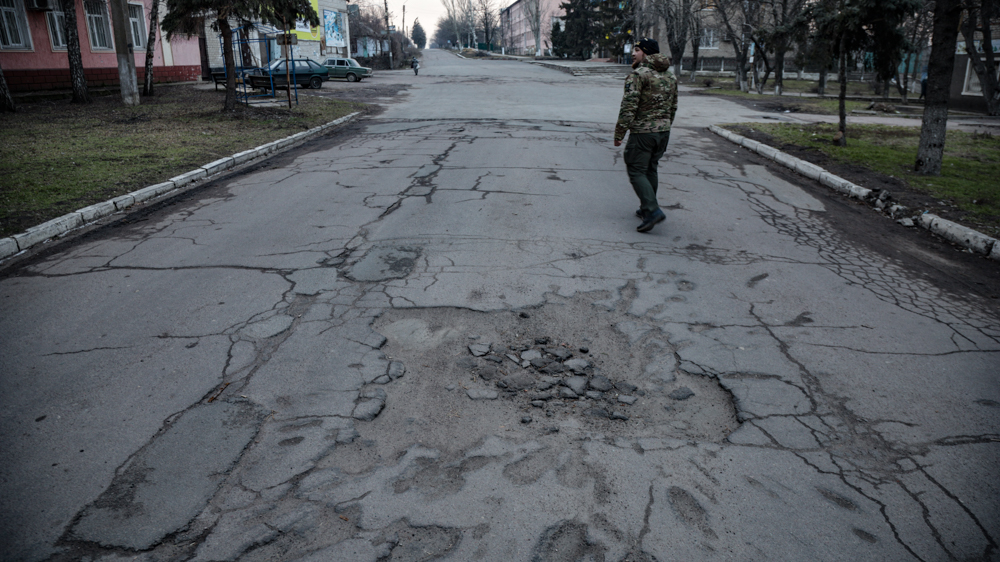
In the first days of October, the liberation of Novovorontsovka region began (neighboring Visokopilya region was liberated on September 4), and the community was finally liberated on October 25.
In fact, Andriy was the only more or less legitimate representative of the government, because he was a deputy of the district council from the party “Servant of the People”.
The process of anarchy lasted until October 28.
“When I was appointed, we immediately started forming a team. I gathered everyone who was there and made them work. As for the shelling, they ended on September 23 – before the liberation. Shellings were still being conducted in the surrounding areas, but not in Vorontsovka itself,” Andriy recalls.
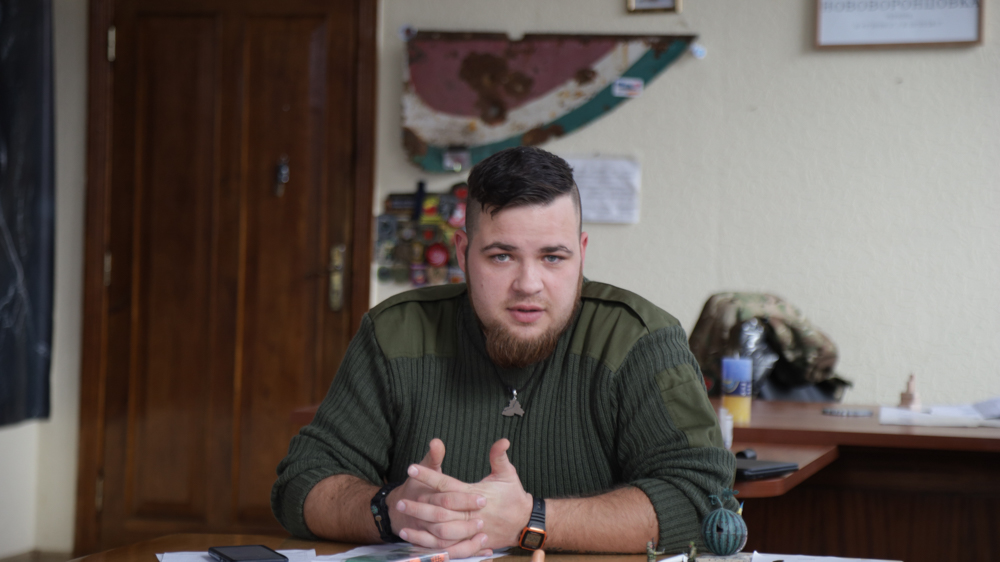
As it turned out later, the issue of personnel turned out to be the most complicated- all those who had previously worked in the government or communal economy left and were in no hurry to return.
Farmers and businessmen, with whom it was possible to establish cooperation, left.
The backbone of the new government consisted of non-local people. Victoria Berezko was the only resident of Novovorontsovka who returned and started working.
Alla Torchanska, who before the invasion was the head of Dudchan village in the neighboring Myliv community, returned from Poland, Serhiy Pilypenko, a former resident of Rogachik, and other people from Seletskyi’s team returned from Kyiv.
Many refused. You can fully understand these people, especially when you stand on the bank of the reservoir and see the opposite bank, from where the Russians can attack from “Grad” or even mortars at any moment.
The first steps of the new government
The new government of the community started with the main directions – humanitarian aid, demining, security, shelter, law enforcement activities.
Andriy honestly says that he has never been an official and has never been oriented in budget issues and narrow topics of local self-government and civil service. By the end of the year, the community did not live within the means of the budget, which was only being discussed.
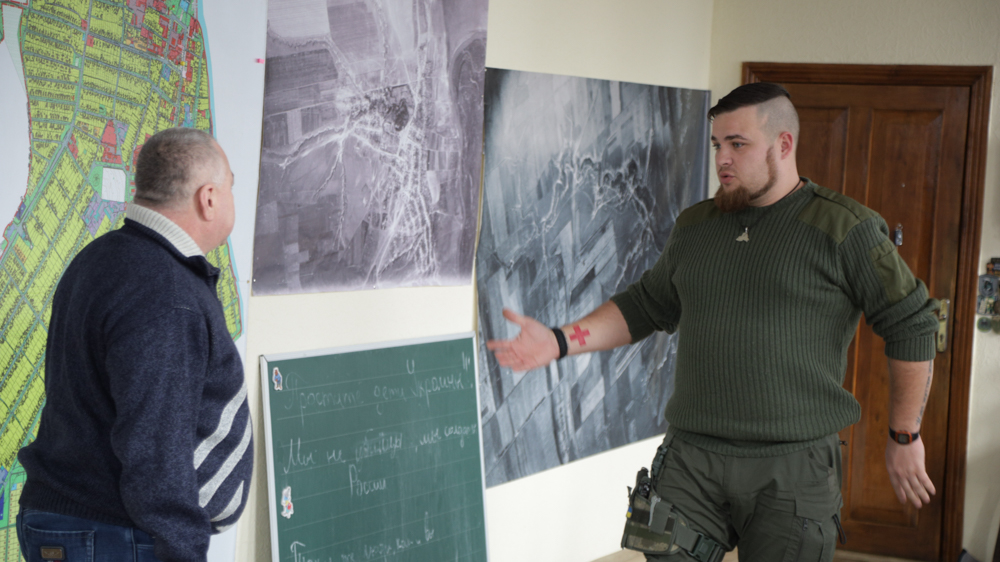
“Until the end of December, we did not take a penny from the budget. It was empty, so I tried to quickly do everything myself to get things working. Everything was done with the funds of donors or in debt, such as, for example, the windows in the building of the village council,” he says.
The main help came from donors and charitable foundations, which still willingly cooperate with Andriy and his community.
The windows in the administration building were put in debt by Andriy’s friends from Kryvyi Rih. At the same time, they began to restore the work of the Ministry of Internal Affairs, the Registry Office, and the Central National Police Service, because people had a great need for this. For more than 7 months, registration procedures for births, deaths, etc. have not been carried out.
However, the lack of firewood became the main problem for Novovorontsovka region with the onset of winter. There was simply nowhere to take them in the steppe community. People in the villages are used to buying firewood for the whole winter with the money earned in the summer, and those who worked better than others could even buy coal. In 2022, for obvious reasons, people did not earn anything, so they had every chance not to survive the cold steppe winter.
Volunteers and partners from other regions began to bring a certain amount of firewood and purchase it through the regional authorities, but it was not enough.
At that time, Andriy walked around the village and other settlements of the community and was concerned about the lack of amenities. They tried to clean, trim trees and bushes with their own strength.
“Visually there was a look of neglect and abandonment. And this amazed me, because no matter how much humanitarian aid you bring, you feel that nobody needs anything here. Even before the war, I had an idea – we need more woodshredders that will cut off the branches. In this way, we eliminate dry branches and bushes and solve the issue of heating. Kryvyi Rih friends helped us attract American investors, and it was a solid start for our Military Administration. While everyone is just getting ready to work, we have already attracted $39,000 in investment into our community. They bought a tractor, a trailer, woodshredders and started working. It happened despite the fact that no one believed in us. People wondered – how is it? Have they already started to put things in order?”, he recalls.
During this interview we were walking along the main street – and indeed: the trees were all cut, and there was not a single branch nearby.
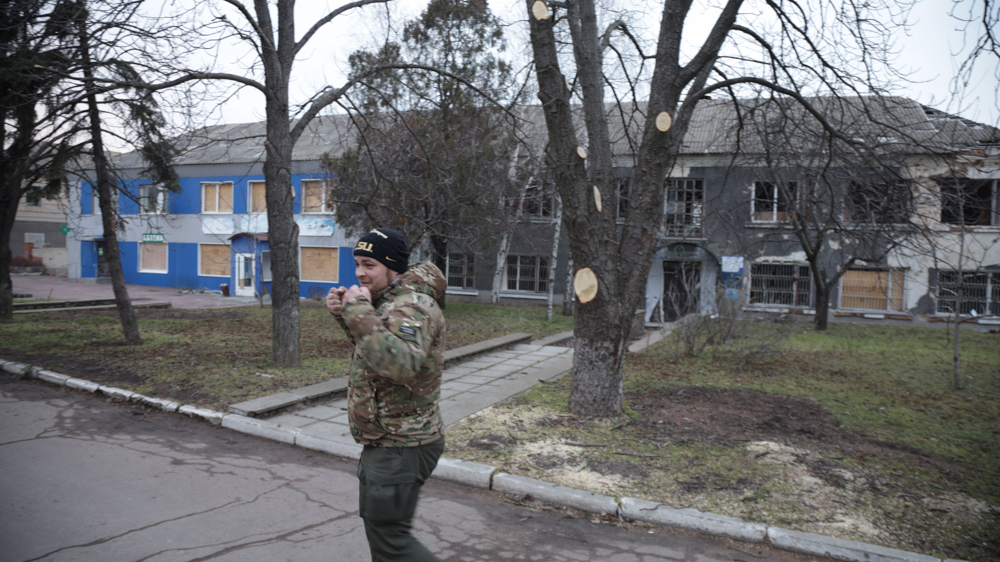
Andriy adds that at first people turned up their noses, saying why are you giving me some garbage instead of firewood? But now there is a queue for the splinter.
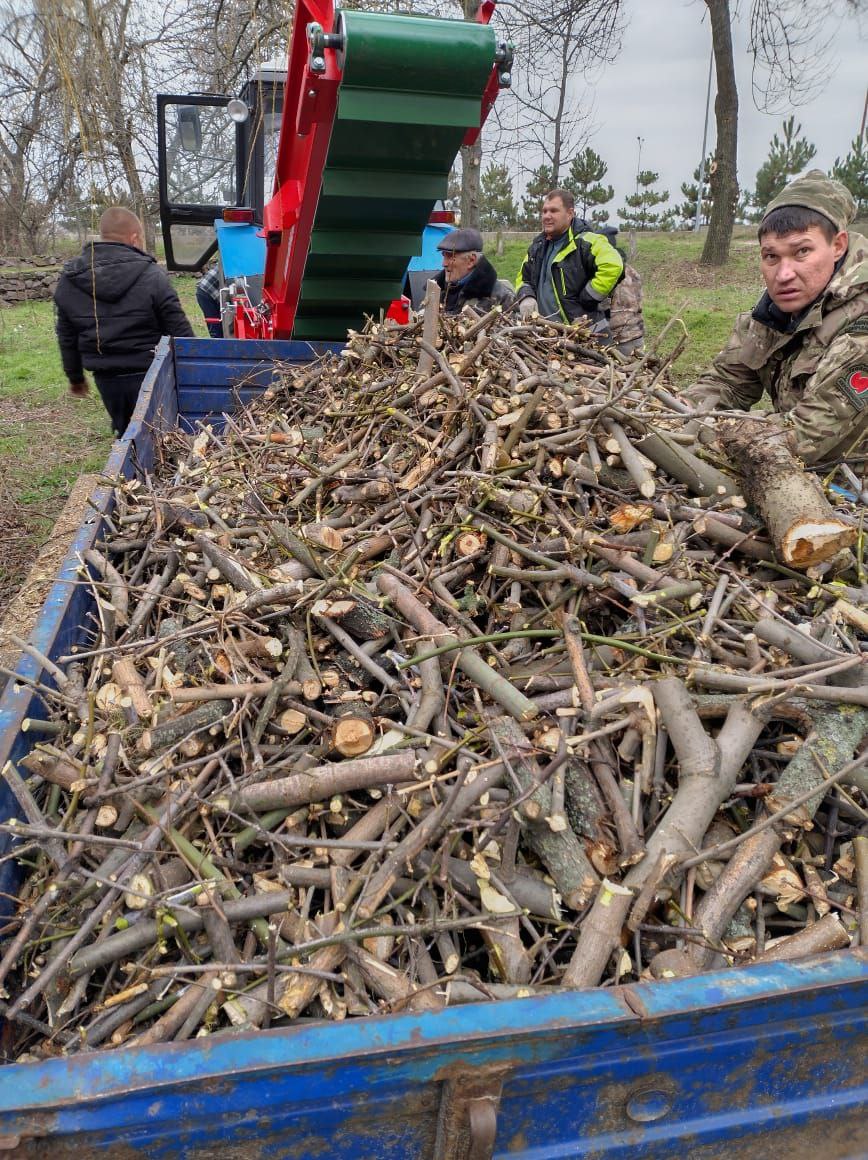
It enlivened people. They began to believe in the new government, so a decision was made to remove the workers of communal institutions from idleness. People did not work, receiving ⅔ of the salary, so they were given a condition – transfer to full-time work, and with those who are not in place, the employment contracts were suspended.
The budget officials agreed, and they formed a whole improvement division – 30 people. The teachers of the music school, the kindergarten, the Youth Sports School and others began to restore order in the community.
Also, the new government paid special attention to the villages of the community. Here it was decided to rely on village elders who knew everything and who were known there.
But things with reconstruction are going very slowly. According to Volodymyr Lytvynov, head of the Beryslav district military administration, there is still no compensation mechanism for damaged and destroyed housing.
How about rebuilding the community?
The same story is with social infrastructure objects. All the schools in the Novovorontsovka community were destroyed.
“We don’t even have an idea of how much it will cost to restore this school. We don’t even understand whether to rebuild it all, or whether to demolish this part,” says Seletskyi, standing next to the school destroyed by a Russian missile.
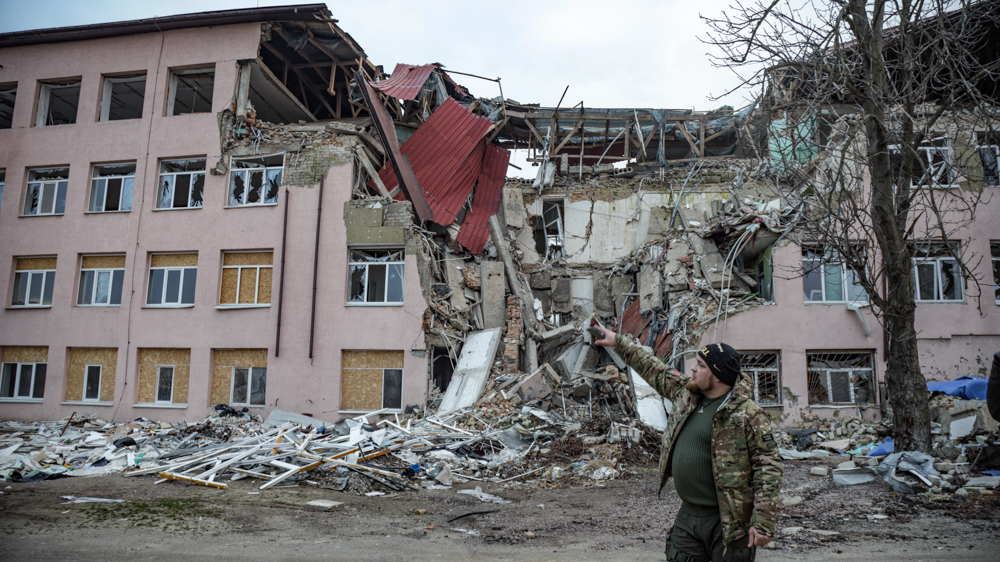
It was renovated relatively recently with the money of one of the candidates for People’s Deputies. It can be seen that the repairs were of high quality, but now everything is gradually falling apart, because the building was not even conserved – no one knows exactly how to do it and at what cost.
“So far, we don’t have a funding mechanism of this kind, so no one understands,” Litvinov comments and adds that currently no one will give money even for an assessment.
This school has already been shown to all donors and partners, but everyone says: we must wait for the end of the war. Plus, the community itself needs to understand whether all the schools will be needed after the war. After all, a huge number of people may not return, and keeping a large educational network will be a luxury for a poor community.
“There is a huge demand for educational services, a great desire of the teaching staff and ours that the first school should be left. We perfectly understand that the Myrolyubiv school is in a minus, because it is cold. There should be an elementary school in every district. The Novovoskresen school is in a minus, but the Lyubimov school is gasified, and one of the first to recruit children, there is a large state enterprise Pioner (8 thousand hectares of arable land, – MIST) and people and children will return there,” says the head of the community, inspecting the school he once graduated from and which, he said, his son would go to.

There were not many people on the streets of the village. We were walking along the local Beverly Hills – the street where the local elites live or lived before the invasion. The road here was full of potholes. Seletskyi complains that judges, prosecutors and other residents of the street could lay asphalt for themselves. Gradually, the conversation came to the issue of people’s dissatisfaction.
Dissatisfied, according to him, are everywhere. Regardless of how much firewood or food was brought to people by volunteers or international organizations.
The team and the head of the military administration perceive it clearly painfully. This is heard during the story about the remote village of Novovoskresenske.
“This is a deep rear, 40 kilometers from us. 600 people live there – this is the largest number in the villages. And they had the least damage – 10 houses were damaged, but the school was completely destroyed. And due to the fact that there are the most children there, we decided to send firewood there, which we received as a subvention from the state. And we drove all the trucks there. And the truck goes through all the villages, and everyone sees that the trucks with firewood go past them. And all residents are dissatisfied. We start to explain, but in vain. There is only one answer – we suffered more than them. We understand. People are very angry, and they want to compensate for their losses with something,” says Seletskyi.
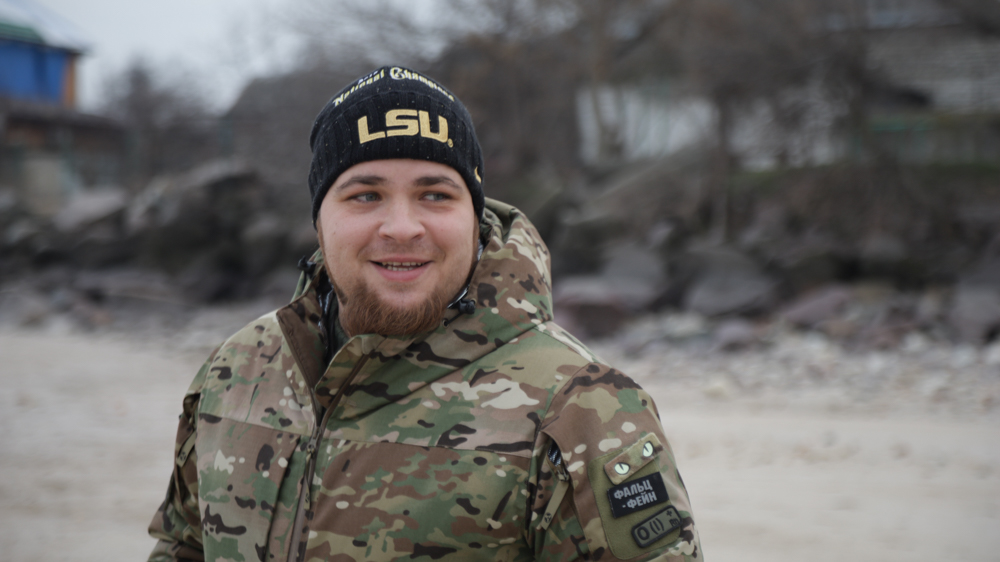
He also laments that people have found a working life hack to get what they want. You just have to complain directly to the governor, most often through Facebook or in messengers. He, in order to maintain his image, “descends” this complaint to the village military administration with a note “to be fulfilled” and here we are forced to fulfill it. And people have this algorithm – if they don’t get what they want to be done in the village, they complain to the governor and the governor fulfills his promises. Andriy attributes all this to human malice and greed and adds that, in his opinion, this is a big problem that should be solved with psychologists.
Reluctantly, but he also talks about the problem of “easy food”. The villages of the community are provided with everything. So much so that there is a danger that people will simply not want to work.
This is a big problem, because the young chairman’s team dreams of reviving production.
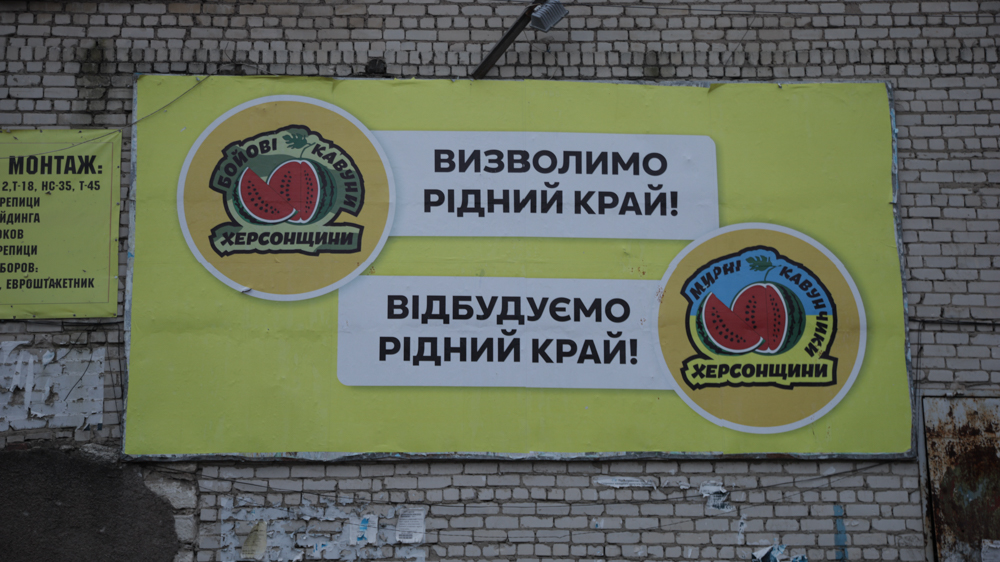
Here they believe that there are prospects for reviving the processing of milk and vegetables, as well as developing their communal greenhouse facility. It turns out that the community has its own agricultural land, which was previously leased to farmers.
“The Biletskyi brothers and I partnered with a French breeding company – they want to give us seeds for humans. And they have already sent melon and pumpkin seeds, and we asked people if you need seeds for sowing? After conducting this survey, we saw how lazy people are. Why? Because everything will be brought and everyone will be fed,” he shares.
But Andriy and his team do not give up and dream of a new Novovorontsovka, to which residents will want to return and tourists will come.
We end our walk through the village on the shore of the Kakhovsky Sea. Diver Seletsky shows us how deep this place was last summer.

When this material was already being prepared, it became clear that due to the shallowing of the Kahovsky Reservoir in Novovorontsovka, water had disappeared. It happened on February 22.
Already on February 24, the Water Mission organization delivered its filter station and began purifying water for the population.
Meanwhile, the military administration is looking for ways to solve another problem. Not the last one for the community.
Serhii Nikitenko


